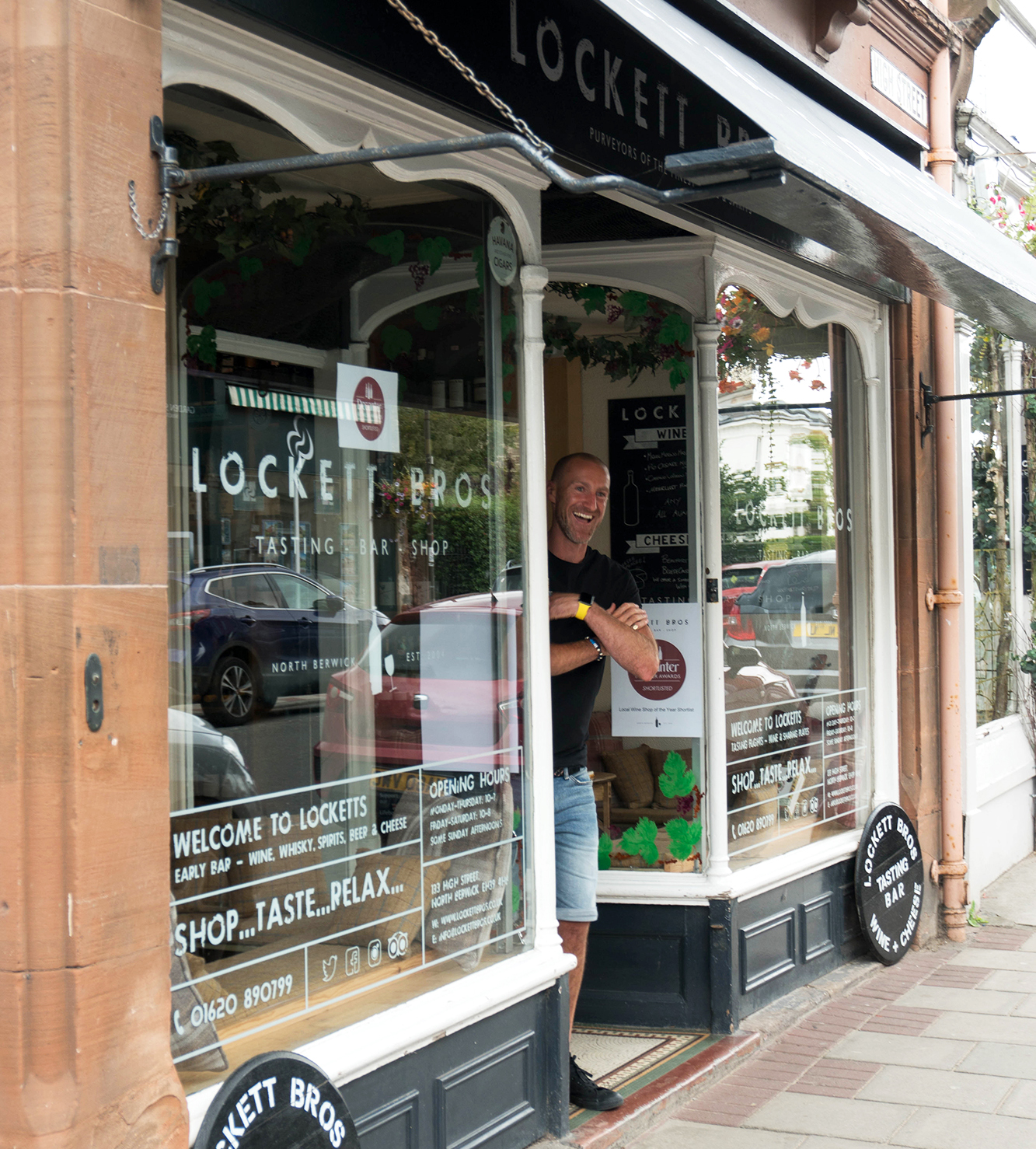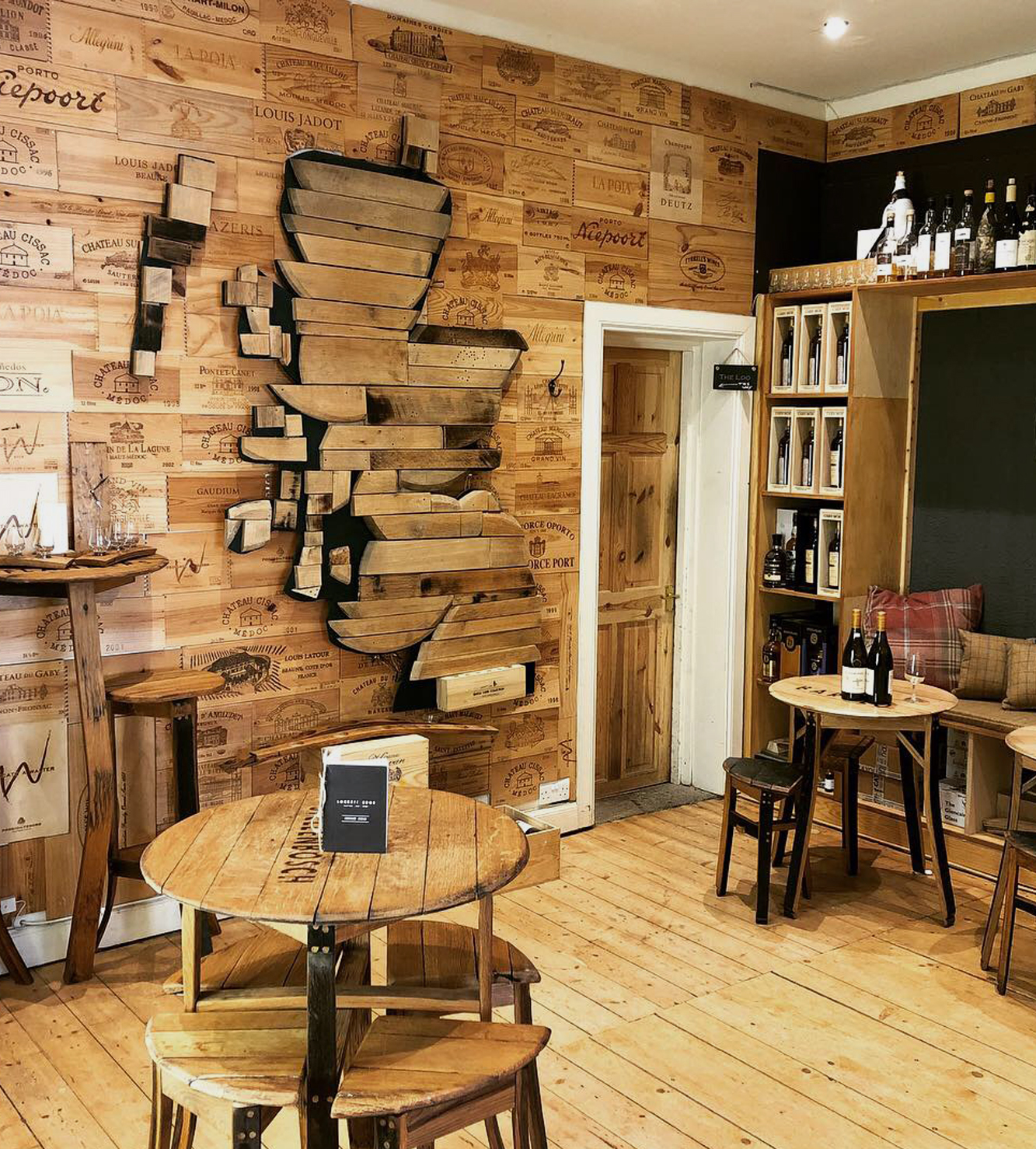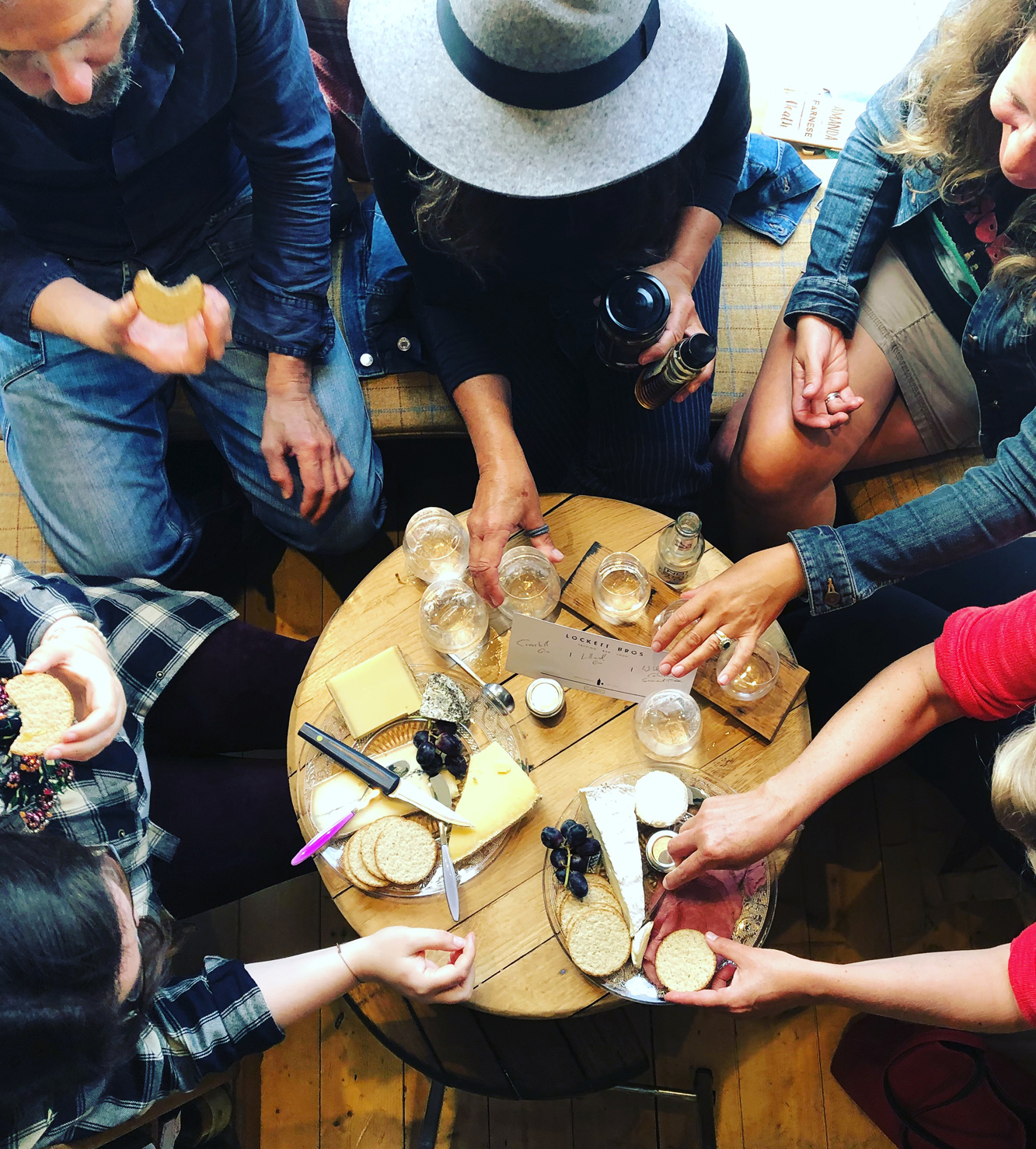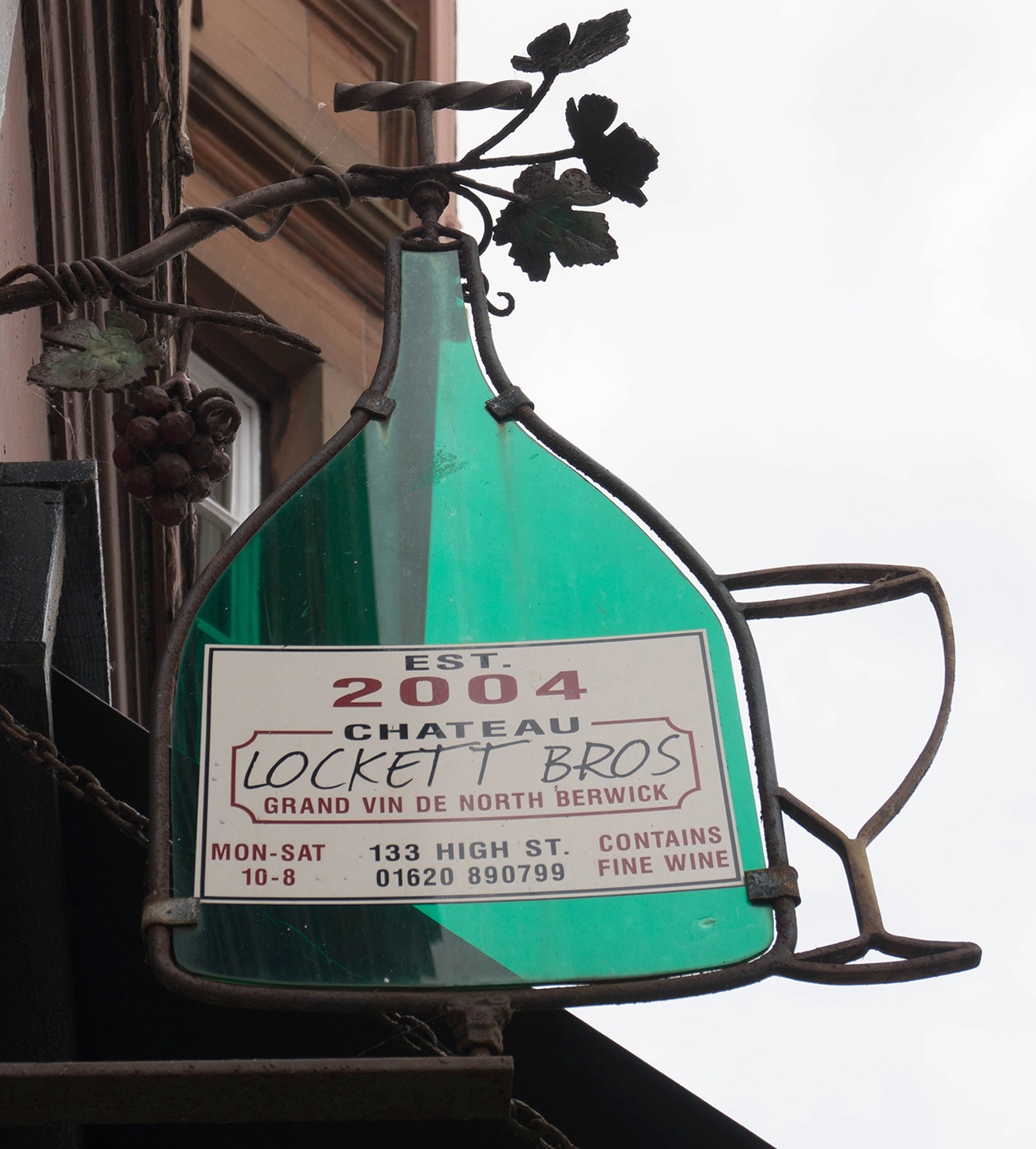

When Chris Lockett first opened his shop back in 2004, the seaside town of North Berwick was a much sleepier place. Even though it’s just half an hour by train from central Edinburgh, it was a little off the beaten track for an adventurous, independent wine shop.
But that wasn’t a problem for Chris. He seems to favour the lesser-travelled parts of the wine world, reflected in the producers and regions he chooses for his shelves. As a super-keen cyclist, he also navigates the byways of the nearby countryside, and even brings some cycling-themed wines into the shop.
“I set the shop up on my own in 2004 after a short period in New Zealand,” he says. “I was never really that successful at university or school, but I found my way just travelling.”
Did the New Zealand experience take you into wine?
Just by chance, yes. I was heading towards hospitality, that’s what I did at university, but I did enjoy that and travelling takes you into that hospitality business.
Halfway through my year in New Zealand I stumbled across a company looking for help in the vineyards in Otago, so back in 1999, just when Otago was kicking off; it was pretty low-key then. It was starting to make noises for its Pinot Noir and things. So it was a really brilliant place to trigger the interest into wine. I just tapped into that and after more messing about, travelling in Australia too, I came home 2001 and went straight into Oddbins like everyone else.
It in that time before they were taken over, pre Seagrams. So I was there during that takeover but I had a good year probably while they were still that quirky, brilliant, independent place to work in Edinburgh. I worked in one shop, which got me going, and then they moved me to the Royal Mile shop and that’s when whisky started to take my interest.
So I was really only two years there and had no interest to work my way up to WSET – I just liked selling the stuff and learning about it naturally. Then I did a small stint working in an independent shop that is now no longer here. It was called The Bottle Stop and it was down near Roseburn Terrace, near Murrayfield. It was a great stepping stone, a year or so there, learning about how an independent shop worked.
What retailing skills did you pick up at The Bottle Stop?
With Oddbins you are just selling, which is good fun but working in an independent was a great way to learn about how to run a shop, ordering and all that. It was there that I decided to give it a go myself and I knew North Berwick, knew there was a gap here, and I started looking around every now and again to see if there was anything coming up. It was still a bustling little town back then, nothing like it is now, which is huge.
I was just so lucky to have got this unit. I was just a nobody. Why would somebody pin their unit on me: no experience, nothing behind me? But thankfully the guy just said, get the change of use, get your licence and then it’s yours for a lease.
What was it before?
It was a bookmaker’s, Morrisons Bookmakers. I just happened to come down when they’d moved across the road on the corner and they hadn’t even put the board up. I managed to sneak in there and persuade the guy to let me have it. And he did! Credit to him.
Jump forward a wee bit, five years later and they sold me the property. So I own this now, which is amazing.
So the starting point is when you took the lease, which was when?
Early 2004 and licencing probably took place that summer and then I opened in September. So this is coming up for 15 years.
How different is the shop now to how it was then?
It is hard to remember what it was like back then. I think it was appalling; basic. But that little spell in the independent trade introduced me to all the distributors, Liberty, Bibendum, Enotria, Hatch Mansfield. That was quite useful, so I knew these guys and they were quite happy to let me get started and supply me.
So who would be your main suppliers now?
Now, well I’ve moved away from the bigger suppliers. Liberty is still a big one for me, but we tend to focus on the much smaller, more niche importers, such as Raymond Reynolds, love those guys – big fans of Portugal. Richard Kelley from Dreyfus Ashby … we’ve always been a fan of his, he’s our South African man. FMV, Maisons Marques et Domaines. Generally the smaller portfolios I guess.


Do you have particular specialist areas in wine?
I think for me personally, having been travelling, being taken on trips to Portugal and South Africa there are two areas that I love. It was Richard Kelley who teed up a whole week of group visits with growers in 2017. South Africa hadn’t been a huge area for us but since then, wow – that is now one of our best-selling areas.
It’s amazing what that does, when you go to visit a country and you’re welcomed by all these amazing, iconic growers. They all looked after us, put us up, and gave us dinner. Chris Williams for example was one of many in the middle of harvest, in February, but he still took the time to give us two or three hours of tasting and good times.
South Africa is such a fascinating country: quality, value, everything is just brilliant. Portugal as well. I’d not any clue at all about what was going on in Portugal, but in 2007 Raymond Reynolds looked after us, took us out and introduced us. That is another fascinating country, style wise, diverse from top to bottom and off the beaten track.
Portugal and South Africa are two countries that represent affordability and value
We’ve just discovered that as we’ve embraced them more. People have obviously been aware of the price and I’m always keen to make sure we’re not too exclusive. I don’t want to scare people off with a fancy wine shop, so we’ve always tried to offer stuff that is affordable. It’s harder now but I’m not fazed by the multiples at all and I never have been. I am aware that you can’t get great wine now for even sub £8-£10. Those days have gone.
With a good bit of help you can still ship in pallets of wine ex-cellar through Raymond Reynolds from Portugal and do wines which are £12 at £10 and stuff like that, and with Richard too. We are still trying to show that we can offer value.
Do you do any of your own importing at all?
Yes I have always done a bit with Logan Wines. He came to see me in 2005 and we hit it off and I actually spend two or three months out in Australia. So he looked after me, put me up for 10 weeks in Mudgee, in the central ranges north of Orange. I lived in this wee house in the vineyards and helped with harvest, basically being a dogsbody around the winery. Hard work but what a great experience that was. Free board, bit of pay, great experience, great to be in Australia, February, March and April time.
How adventurous are your customers, and what is your customer base here?
There are a lot of tourists. It’s developed so much as a real destination, this town – young families, commuters. It’s a half-mile train ride to the city centre, and the property is not cheap, but everyone still wants to move and live here.
The age profile has come down. It was traditionally an old people’s town, but since I’ve been here it has become more and more vibrant. Lots more places to go out eat and drink. Really quite dynamic places like coffee houses.
It appeals to the younger market as well, but they have to have some money in order to live here now and that has been the case for quite a while. This helps with my kind of customer base because they have a bit of money to spend. I don’t know how to say that without sounding crude.
They are quite sensitive because you have to look after them. I’ve always been aware of service being so important. One little error and you could lose someone like that. Thankfully over the years the trust is there solid.
I like being honest with people, being myself and people seem to respond to that, not like your typical wine merchant the way I behave. I try to be more casual and relaxed, less formal, more easy-going. I’m wearing shoes for the first time today, never wear trousers, and always in shorts. I’m always cycling around so I’m often in here when it’s busy in Lycra but people don’t seem to care. I like the quirk factor, as far away from corporate as possible I guess.
As well as the wine you’ve obviously got a big focus on whisky?
We’ve seen this upsurge in the quality of whisky and a move away from conventional whisky as well. I think my earliest memory was probably when Jim McEwan and his pals bought Bruichladdich distillery and that started this whole generation of quirky bottlings.
It was so refreshing to experience that and see it happen. I was so sad when they sold and things changed and almost overnight that magic was gone and I don’t deal with them anymore.
I tend to focus on family-owned independent distilleries: Kilchoman, Springbank, Benromach, Glenallachie … there are still a lot out there so I tend to focus on them, plus the quality of independent bottlings is amazing. We probably sell as many independent bottlings as distillery bottlings.
Are you doing some of your own?
Yes, we’ve been doing that since 2006. Two or three years after we set up we came up with the idea that if we could we would buy whisky and bottle it under our own labels, named after the islands off the coast. So there’s The Bass, which has always been our Islay bottling; there is Fidra, which has always been our Highland bottling, and there’s Craigleith as well, which has always been our Speyside bottling. We’re up to 20 cask bottlings. I have actually lost count, there’s been that many.
Is it harder to get the liquid?
It’s been harder and harder. In the earlier bottlings we were doing 15-year-old Bowmore, 21-year-old Aberlour and 18-year-old Clynelish. Nowadays the ages have come down but the quality has still remained really high with the connections that we have in the trade.
Having got to know these guys they’d be happy to share some of their casks with us and they are that good that even a five-year-old can taste exceptional. Our current range is an eight year old Caol Ila an eight-year-old Benrinnes and a nine-year-old Blair Atholl, but it is not a problem that they’re that young, and people aren’t bothered by it either, because you explain to them that it is a good cask.
In terms of people coming in off the street, are they coming in for the whisky and staying for the wine?
A lot of people that don’t perhaps know us are always taken aback slightly as it is a small town, down the coast from Edinburgh. It’s not the kind of shop you expect to see. Maybe there are plenty of them in the central belt and the busier areas, but even I still get taken aback by the stuff we have in this little seaside town. It’s crazy to have £100 bottles of wine. You don’t know who’s going to come in and plenty of people still want these things.
You’ve got quite an active website, selling online too. How big a part of business is it?
Not much, I guess I could be doing better on that, but I’m not that interested in developing it too much. About 5% of our turnover comes from the website. I don’t really care about that too much.
Click here to download the full interview – (word doc)
